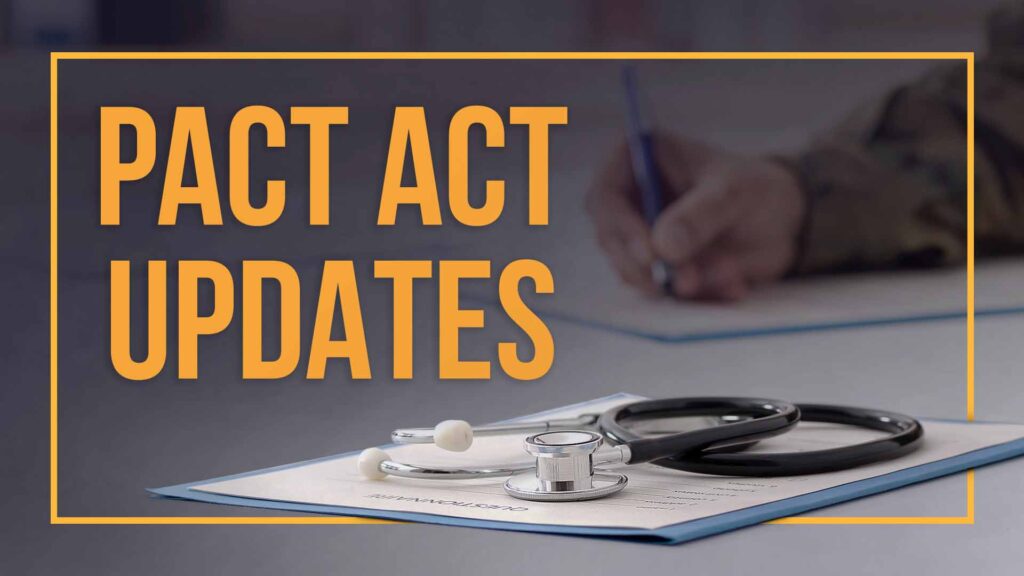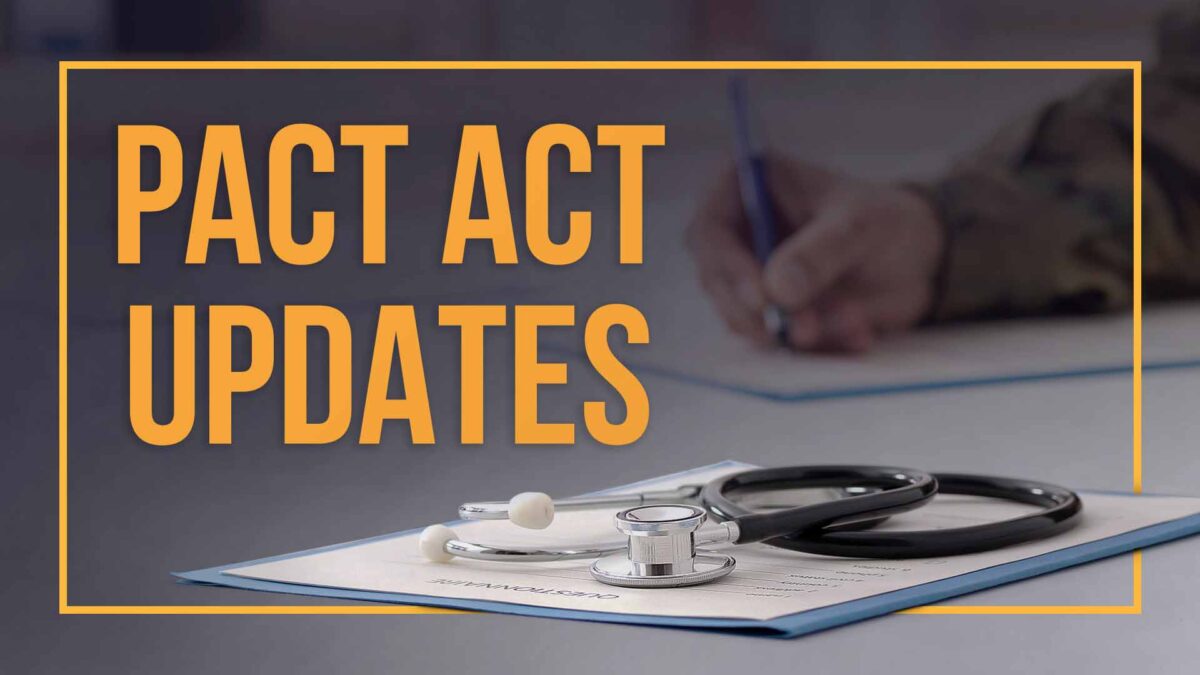Abes Baumann PACT Act Updates: Proposed Changes for Constrictive Bronchiolitis

What is the PACT Act?
The PACT Act is the largest expansion of veteran benefits and care in VA history, expanding the rights of millions of toxic-exposed veterans and their survivors to receive VA disability benefits.
The Latest
Veterans with constrictive bronchiolitis (CB) may soon be able to get benefits more easily. (CB is one of the conditions that, per the PACT Act, is presumed to be linked to military service.) The VA recently proposed changes that would remove barriers to veterans with CB that are applying for benefits.
Why the VA is Proposing These Changes
Some veterans have had trouble getting their benefits approved by the VA because CB lacks its own diagnostic code in the VA disability claims systems (no code = “Zero” disability rating, which means a veteran is not awarded disability compensation), and CB is hard to diagnose without invasive tests.
What this Means for You
The VA is looking to add a diagnostic code for CB and to also allow additional medical tests to help veterans get an accurate disability rating.
While these changes are not yet finalized, the VA’s proposal is a significant step forward.
More on CB
This chronic respiratory condition affects the bronchioles, the smallest airways in your lungs. With CB, these airways become inflamed, damaged and then scarred due to inhalation of toxic substances, such as burn pits, or from infections.
Getting Help
If you’re a veteran or a caregiver for one, we know it can be overwhelming to track and manage all of the aspects related to healthcare. From forms to processes to deadlines, the administrative portion alone is confusing and time-consuming.
- For PACT Act questions and other assistance, contact Abes Baumann at 1-800-344-3090 or visit https://abesbaumann.com/ and click “Talk with an attorney now.”
- Read here for more information on VA disability compensation related to exposure to burn pits and other environmental hazards during military service.
